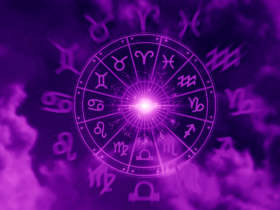Astrology, an ancient practice rooted in the belief that celestial bodies influence earthly events, also suggests that the positions of the stars and planets impact our emotions. For centuries, astrologers have posited that the alignment of planets at the moment of our birth creates a blueprint for our personalities, emotional responses, and even our life paths. While the scientific community largely dismisses astrology as pseudoscience, many individuals turn to it as a tool for understanding emotional fluctuations and inner conflicts.
The Role of the Moon
One of the most significant celestial bodies in astrology that directly ties to emotions is the Moon. In astrological terms, the Moon governs our emotional world, representing our subconscious feelings, instincts, and how we react to the world around us. The phases of the Moon—waxing, waning, new, and full—are said to trigger emotional shifts.
- New Moons are associated with beginnings, introspection, and setting intentions, often bringing a more inward, reflective mood.
- Full Moons, conversely, are linked to heightened emotions, clarity, and release. During a Full Moon, many report feeling more energetic or emotionally charged, which astrologers attribute to the Moon’s full illumination symbolizing the peak of emotional experiences.
Planetary Transits and Mood
In astrology, planetary transits—the movement of planets through different zodiac signs—are believed to cause shifts in our emotions and behaviors. Some common examples include:
- Mercury Retrograde, a phenomenon that occurs several times a year, is infamous for disrupting communication and causing misunderstandings. Astrologers believe it can lead to feelings of frustration, anxiety, and confusion.
- Venus, the planet of love, when transiting through different signs, is thought to influence our relationships and how we experience love and affection. A Venus transit might bring feelings of warmth and romantic optimism, or, in contrast, cause challenges in relationships.
- Mars, known as the planet of action and desire, can heighten feelings of anger, drive, and ambition during its transit. This period is often marked by emotional intensity, conflict, or a surge in passion and assertiveness.

Birth Charts and Emotional Patterns
Astrology suggests that our emotional tendencies are deeply connected to our natal chart, a map of the sky at the time of birth. Each planet and star sign contributes to a person’s unique emotional makeup. For example, a person with the Moon in a fire sign (Aries, Leo, Sagittarius) may experience emotions with more intensity and spontaneity, while someone with their Moon in a water sign (Cancer, Scorpio, Pisces) might feel emotions more deeply and intuitively.
Related: What It’s Like to Work, Play, and Live as an Air Sign
Astrology’s Appeal Despite Skepticism
Despite the lack of scientific validation, astrology holds a profound appeal for many who seek meaning in the cosmos. The idea that the movements of the stars and planets are intertwined with our emotional experiences can offer comfort and a sense of belonging to a greater universal order. Astrology encourages self-reflection, helping individuals explore their emotions through an external lens. It offers explanations for the inexplicable, suggesting that there’s a rhythm to emotional highs and lows, dictated by the cosmos.
For some, the practice of following astrology enhances their emotional awareness, offering an alternative perspective on life’s challenges. Though the effects of planetary movements on mood cannot be empirically measured, astrology continues to resonate with millions, providing a cosmic language through which emotions can be understood and explored.





















